Related Research Articles
Year 1498 (MCDXCVIII) was a common year starting on Monday of the Julian calendar, the 1498th year of the Common Era (CE) and Anno Domini (AD) designations, the 498th year of the 2nd millennium, the 98th year of the 15th century, and the 9th and pre-final year of the 1490s decade.
Year 1497 (MCDXCVII) was a common year starting on Sunday of the Julian calendar.

Girolamo Savonarola or Jerome Savonarola was an Italian Dominican friar from Ferrara and preacher active in Renaissance Florence. He was known for his prophecies of civic glory, the destruction of secular art and culture, and his calls for Christian renewal. He denounced clerical corruption, despotic rule, and the exploitation of the poor.
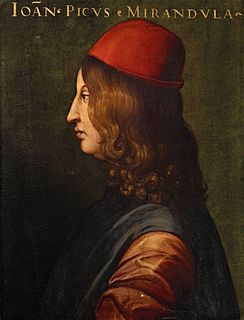
Giovanni Pico della Mirandola was an Italian Renaissance nobleman and philosopher. He is famed for the events of 1486, when, at the age of 23, he proposed to defend 900 theses on religion, philosophy, natural philosophy, and magic against all comers, for which he wrote the Oration on the Dignity of Man, which has been called the "Manifesto of the Renaissance", and a key text of Renaissance humanism and of what has been called the "Hermetic Reformation". He was the founder of the tradition of Christian Kabbalah, a key tenet of early modern Western esotericism. The 900 Theses was the first printed book to be universally banned by the Church. Pico is sometimes seen as a proto-Protestant, because his 900 theses anticipated many Protestant views.

The Republic of Florence, officially the Florentine Republic, was a medieval and early modern state that was centered on the Italian city of Florence in Tuscany. The republic originated in 1115, when the Florentine people rebelled against the Margraviate of Tuscany upon the death of Matilda of Tuscany, who controlled vast territories that included Florence. The Florentines formed a commune in her successors' place. The republic was ruled by a council known as the Signoria of Florence. The signoria was chosen by the gonfaloniere, who was elected every two months by Florentine guild members.
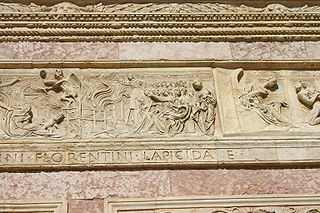
A bonfire of the vanities is a burning of objects condemned by religious authorities as occasions of sin. The phrase itself usually refers to the bonfire of 7 February 1497, when supporters of the Dominican friar Girolamo Savonarola collected and burned thousands of objects such as cosmetics, art, and books in the public square of Florence, Italy, on the occasion of Shrove Tuesday.

Piazza della Signoria is a w-shaped square in front of the Palazzo Vecchio in Florence, Italy. It was named after the Palazzo della Signoria, also called Palazzo Vecchio. It is the main point of the origin and history of the Florentine Republic and still maintains its reputation as the political focus of the city. It is the meeting place of Florentines as well as the numerous tourists, located near Palazzo Vecchio and Piazza del Duomo and gateway to Uffizi Gallery.

The University of Ferrara is the main university of the city of Ferrara in the Emilia-Romagna region of northern Italy. In the years prior to the First World War the University of Ferrara, with more than 500 students, was the best attended of the free universities in Italy. Today there are approximately 16,000 students enrolled at the University of Ferrara with nearly 400 degrees granted each year. The teaching staff number 600, including 288 researchers. It is organized into 12 Departments.
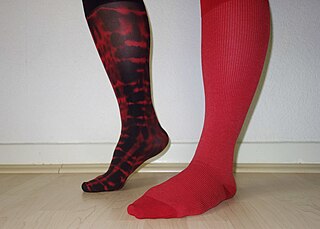
Compression stockings are a specialized hosiery designed to help prevent the occurrence of, and guard against further progression of, venous disorders such as edema, phlebitis and thrombosis. Compression stockings are elastic compression garments worn around the leg, compressing the limb. This reduces the diameter of distended veins and increases venous blood flow velocity and valve effectiveness. Compression therapy helps decrease venous pressure, prevents venous stasis and impairments of venous walls, and relieves heavy and aching legs.
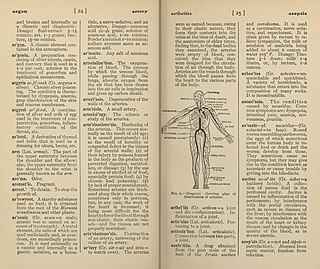
A medical dictionary is a lexicon for words used in medicine. The three major medical dictionaries in the United States are Stedman's, Taber's, and Dorland's. Other significant medical dictionaries are distributed by Elsevier. Dictionaries often have multiple versions, with content adapted for different user groups. For example Stedman's Concise Medical Dictionary and Dorland's are for general use and allied health care, while the full text editions are reference works used by medical students, doctors, and health professionals. Medical dictionaries are commonly available in print, online, or as downloadable software packages for personal computers and smartphones.

Infelix ego is a Latin meditation on the Miserere, Psalm 51, composed in prison by Girolamo Savonarola by 8 May 1498, after he was tortured on the rack, and two weeks before he was burned at the stake in the Piazza della Signoria in Florence on 23 May 1498. The prison authorities had spared only his right arm during the preliminary torture, so that Savonarola would be able to sign his confession: after doing so, and in a state of despair at not being strong enough to resist the pain of his prolonged torture, he wrote Infelix ego and a portion of a companion meditation, Tristitia obsedit me, on Psalm 30. He was executed before he was able to complete Tristitia obsedit me.
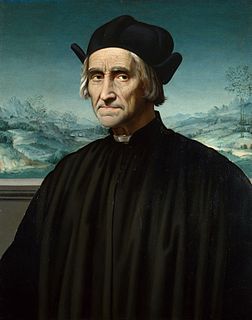
Girolamo Benivieni was a Florentine poet and a musician. His father was a notary in Florence. He suffered poor health most of his life, which prevented him from taking a more stable job. He was a leading member of the Medicean Academy, a society devoted to literary study. He was a friend of Giovanni Pico della Mirandola (1463–1494), whom he met for the first time in 1479; it was Pico della Mirandola who encouraged him to study Neoplatonism. In the late 1480s, he and Pico della Mirandola became students of Dominican friar Girolamo Savonarola (1452–1498). In 1496, he translated the teachings of Savonarola from Italian to Latin. After he began following Savonarola, he rejected his earlier poetry and attempted to write more spiritually. He participated in Savonarola's Bonfire of the Vanities, and documented the destruction of art worth "several thousand ducats".
The Miserere, by Josquin des Prez, is a motet setting of Psalm 51 for five voices. He composed it while in the employ of Duke Ercole I d'Este in Ferrara, in 1503 or 1504. It was one of the most famous settings of that psalm of the entire Renaissance, was hugely influential in subsequent settings of the Penitential Psalms, and was itself probably inspired by the recent suffering and execution of the reformer Girolamo Savonarola.
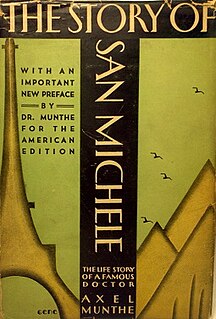
The Story of San Michele is a book of memoirs by Swedish physician Axel Munthe first published in 1929 by British publisher John Murray. Written in English, it was a bestseller in numerous languages and has been republished constantly in the nine decades since its original release.

Romola is a 1924 American silent drama film directed by Henry King and shot on location in Italy. The film stars Lillian Gish, Dorothy Gish, William Powell, and Ronald Colman, and is based on the 1863 George Eliot novel of the same name.

Gerlind Cornell Borchers was a German actress and singer, active in the late 1940s and 1950s. She is best remembered for her roles opposite Montgomery Clift in The Big Lift (1950) and Errol Flynn and Nat King Cole in Istanbul (1957). She was said to resemble Ingrid Bergman in mid-1950s reviews.
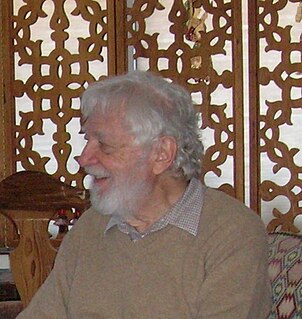
Donald Weinstein was a leading USA historian of the Italian Renaissance.
Jean Marie Despiau (?–1824), also spelled Jean-Marie Despiaux, was a French physician, later a mandarin of Nguyễn dynasty, Vietnam.

Lent is a 2019 fantasy novel by Jo Walton, about Girolamo Savonarola. It was first published by Tor Books, and was nominated for the Mythopoeic Fantasy Award.
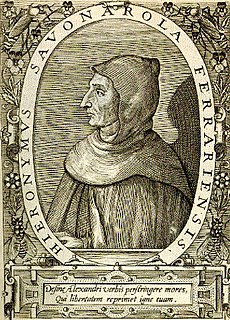
Piagnoni were a group of Christians who followed the teachings of Girolamo Savonarola. The later Piagnoni remained in the Catholic Church and kept a mixture with the teachings of Catholic dogma and the teachings of Girolamo Savonarola. The name Piagnoni was given because they wept for their sins and the sins of the world.
References
- ↑ Kurt M. Boughan, review of Michele Savonarola, Medicina e cultura di corte by Chiara Crisciani and Gabriella Zuccolin, The Medieval Review, 13 October 2003